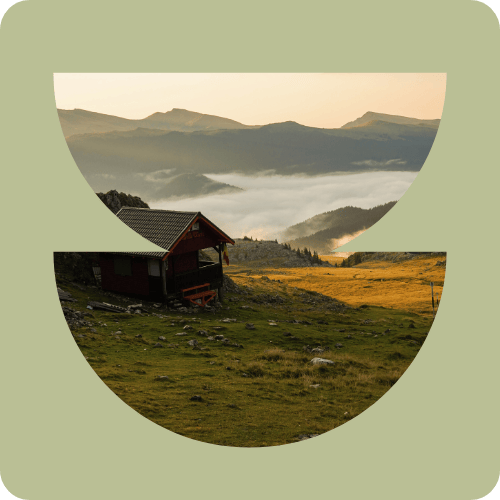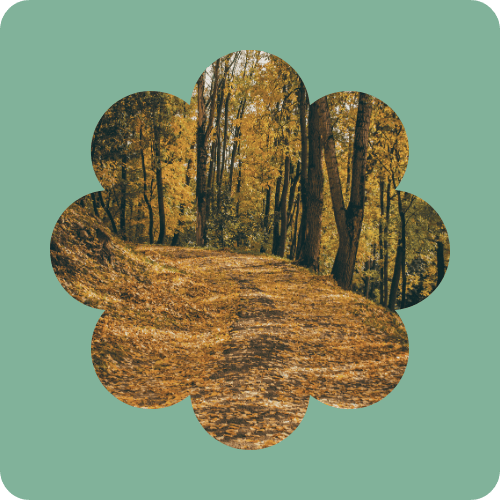Shake Up The Establishment’s Feedback on the National Framework for Environmental Learning Discussion Document
Author
Anna Huschka
My name is Anna (she/her), and I am a white settler located on the lands of the Williams Treaty First Nations – the Alderville First Nations, Beausoleil First Nation, Chippewas of Georgina Island, Chippewas of Rama, Curve Lake First Nation, Hiawatha First Nation, and Mississaugas of Scugog Island. I do not intend to speak on behalf of any communities I am not a part of. I hope to leverage my position of privilege as a cisgender white woman to amplify the efforts and voices of those doing so much work towards climate justice in their communities across the country. I want to be a part of challenging the Euro-settler-centric and Western values that currently shape climate policies, to counteract colonial and systemic barriers, ensuring that the concerns, exposures, and knowledges of diverse communities are adequately incorporated into environmental policies and projects. As a part of the Shake Up Your Community project, I hope to help support climate work at all scales and showcase the community-based efforts that have developed out of necessity of addressing the issues of climate justice. As a biology major and politics minor, my passion for environmental politics developed from a sense of urgency and anger about the lack of action by decision-makers to adequately address the climate crisis. I aim to hold decision-makers accountable to climate commitments as well as diversify what is currently Canada’s political climate by identifying gaps in policies and projects by responding to calls for public feedback. Through the Righting History Project, particularly Practicing Rest, Recovery, Resistance: An Interactive Dreaming Journal, I hope to help youth see that their existence, and any contributions they make to the climate movement as a whole, regardless the scale, are beautiful acts of resistance to our colonial, capitalistic society.
Editor
Manvi Bhalla

What do I need to know about a National Framework for Environmental Learning?
This framework intends to increase the environmental literacy of the public, with a particular focus on youth and children (1).
This will be achieved through the development of programming and curricula in collaboration with provincial and territorial governments, Indigenous communities and other community leaders and organizations (1).
Why is participating in this policy feedback opportunity important?
- In the face of increased intensity and frequency of extreme weather conditions and natural disasters, like recent flooding in so-called Toronto and countless wildfires burning across the country, it is vital that people have access to environmental learning opportunities so they can be prepared and understand the events going on around them (2,3).
- A 2021 study by the Lancet found that 84% of all youth respondents were experiencing at least moderate feelings of concern regarding the climate crisis (4). It is vital that young people are not only able to learn about the impacts of climate change, but be given opportunities to implement solutions and influence decision-making as well. That’s why our team has provided feedback and why we will encourage other young people to participate in consultations throughout the remainder of the framework drafting process.
Executive Summary of Shake Up The Establishment’s Feedback
Our team of youth volunteers combined our unique educational, professional, and lived experiences to write 20 pages of feedback on the National Framework for Environmental Learning Discussion Document. Our team had the following four key areas of concern with the current approach:
- Youth and students are not the only people being impacted by climate change, thus environmental education programming must be made available and accessible to other groups looking to learn, like immigrants and new migrants.
- The current approach asks youth to spur monumental changes within their homes and lifestyles, while also failing to acknowledge the climate justice work being done by youth in grassroots organizational spaces.
- There is untapped potential for the framework to continue to provide training and learning opportunities beyond conventional education systems.
- The current framing and tone of the National Framework for Environmental Learning discussion document has left us with quite a few concerns about what will actually be taught in environmental education settings informed by this Framework.
Shake Up The Establishment’s Key Recommendations
- Programming stemming from the Framework must expand to support communities outside of students and youth, and provide supports and compensation to educators and organizations already doing this work.
- Youth have not created the climate crisis; the government must ensure that they are not burdened with the sole responsibility of addressing its impacts.
- The government must provide environmental learning opportunities beyond the standard education and schooling systems.
- The government needs to be more specific in how issues of climate injustice and Indigenous knowledges will be used to shape environmental literacy programming and curricula, and elucidate on its culturally appropriate/linguistically accessible nature.
Policy Brief: Shake Up The Establishment’s Feedback on the National Framework for Environmental Learning
References
- Canada E and CC. Toward a National Framework for Environmental Learning: Discussion Paper [Internet]. Canada: Environment and Climate Change Canada; [modified 2024 May 14th; cited 2024 Jul 23]. Available from: https://www.canada.ca/en/environment-climate-change/corporate/transparency/consultations/national-framework-environmental-learning/discussion-paper.html
- Media Relations. City of Toronto provides an update on response efforts following heavy rainfall [Internet]. Toronto: City of Toronto; [2024, Jul 16; 2024 Jul 23]. Available from: https://www.toronto.ca/news/city-of-toronto-provides-an-update-on-response-efforts-following-heavy-rainfall/
- Natural Resources Canada. National Wildland Fire Situation Report {Internet]. Canada: Natural Resources Canada; [modified Jul 17 ; cited 2024 Jul 23]. Available from: https://cwfis.cfs.nrcan.gc.ca/report
- Hickman, C., Marks, E., Pihkala, P., Clayton, S., Lewandowski, R.E., Maaoll, E.E., Wray, B., Mellor, C., van Susteren, L. Climate anxiety in children and young people and their beliefs about government responses to climate change: a global survey. Lancet. 2021; 5(12): E863-E873. https://doi.org/10.1016/S2542-5196(21)00278-3


